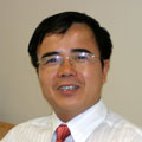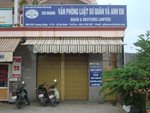The Wall Street Journal
REVIEW & OUTLOOK
March 30, 2007
Vietnam's democracy movement will soon mark the anniversary of a ground-breaking manifesto and the birth of a major new pro-rights group. So naturally Hanoi is marking the occasion by arresting activists, five of whom are due to appear in court today. Vietnam's much heralded economic opening may be continuing apace, but when it comes to politics, it's business as usual for the Communist Party leaders.
This story begins a year ago, with Vietnam perched on the brink of World Trade Organization accession and preparing to host the Asia-Pacific Economic Cooperation summit in November. The government quietly eased up on its political opponents to enhance its international image in advance of the visit of President Bush and other world leaders for the APEC meeting.
The dissidents not so quietly took advantage of the opportunity. On April 6, 116 signed an open letter demanding an end to one-party rule and encouraging underground parties to come into the light. That was followed, on April 8, with release of a manifesto demanding basic freedoms for the Vietnamese people. We reprint excerpts1.
In the past year, the letter and manifesto have spurred a full-blown democracy movement known as "Block 8406." The message to the Communist government is clear: Vietnam may yet have a one-party government, but it is no longer a one-party country.
With WTO accession complete and APEC's foreign dignitaries safely seen off, the crackdown began in earnest on February 16, the eve of the Tet holiday. The government's harassment has hit members of groups such as the Alliance for Human Rights and Democracy in Vietnam, the People's Democratic Party, and the Committee for Human Rights in Vietnam. A Protestant pastor, Nguyen Cong Chinh, and his wife reportedly were beaten by police before he was arrested. In some cases the dissidents were held and interrogated for only a few hours. Others remain in jail indefinitely. Some sit under house arrest. Many have "only" been threatened with prosecution. The whereabouts of several are unknown.
Hanoi's outrageous behavior has even touched the U.S. Le Quoc Quan was arrested on March 8, four days after returning to Vietnam following a fellowship at the National Endowment for Democracy in Washington, D.C., where he pursued research on the role of civil society in emerging democracies. "It is a deep insult to the United States that the Vietnamese regime would harass someone in this way who has just participated in a citizen exchange program supported by the U.S. Congress and Department of State," president Carl Gershman says in a statement posted on NED's Web site.
The Catholic Church has also been hit. The February crackdown included the ransacking of the rectory of a Catholic priest, Nguyen Van Ly, 60, a founder of Block 8406. Father Ly has been relocated to a remote rural parish to await trial; he is among the five who will face Vietnamese "justice" today. The others, named nearby, include a 21-year-old woman, a teacher and an electrician.
Political repression is old hat for the Vietnamese government. But this latest wave of arrests is notable because it follows a year in which Hanoi has tried to present a "new" Vietnam to the outside world. And therein may lie what passes for good news in this story: Because Hanoi is increasingly sensitive to its image abroad -- and because it is seeking foreign investment -- the free world has considerable leverage. Experience already suggests that Hanoi is susceptible to international pressure.
In 2004, Washington's inclusion of Vietnam on its list of "Countries of Particular Concern" for religious rights abuses embarrassed Hanoi. The government curtailed some of its most glaring violations such as forcing believers to renounce their faith and banning house churches and even went so far as to sign an agreement with the U.S. in May 2005 in which it promised to behave. As a reward, Vietnam was taken off the list shortly before the APEC summit opened last year.
World leaders are again starting to take an active interest in the plight of Vietnam's dissidents. Secretary of State Condoleezza Rice raised the issue during recent meetings in Washington with Vietnam's foreign minister. A bipartisan group of U.S. Congressmen has introduced a resolution linking ties with Vietnam to its "adherence to the rule of law and respect [for] the freedom of religion and expression."
In Europe, a group of Swedish MPs recently traveled to Vietnam, where they met with family members of some of the jailed dissidents. When a Vatican delegation visited Vietnam this month, the leader raised the case of Father Ly with officials. Rights activists in Europe report concern among members of the European Parliament in Brussels. About the only major international body that appears to be averting its eyes is the United Nations, where Vietnam stands nominated for a rotating seat on the Security Council for 2008-09.
This week Hanoi bowed to pressure on at least one front and announced that it will stop placing dissidents under house arrest indefinitely without trial. The tack had been a favorite of the government since it effectively isolated political troublemakers without creating the public stir of a trial. The new policy appears to be the result of outside pressure. A September government analysis reportedly noted that the practice "has shown many limitations in the context of recent international integration."
Vietnam's democracy movement will soon mark the anniversary of a ground-breaking manifesto and the birth of a major new pro-rights group. So naturally Hanoi is marking the occasion by arresting activists, five of whom are due to appear in court today. Vietnam's much heralded economic opening may be continuing apace, but when it comes to politics, it's business as usual for the Communist Party leaders.
This story begins a year ago, with Vietnam perched on the brink of World Trade Organization accession and preparing to host the Asia-Pacific Economic Cooperation summit in November. The government quietly eased up on its political opponents to enhance its international image in advance of the visit of President Bush and other world leaders for the APEC meeting.
The dissidents not so quietly took advantage of the opportunity. On April 6, 116 signed an open letter demanding an end to one-party rule and encouraging underground parties to come into the light. That was followed, on April 8, with release of a manifesto demanding basic freedoms for the Vietnamese people. We reprint excerpts1.
In the past year, the letter and manifesto have spurred a full-blown democracy movement known as "Block 8406." The message to the Communist government is clear: Vietnam may yet have a one-party government, but it is no longer a one-party country.
With WTO accession complete and APEC's foreign dignitaries safely seen off, the crackdown began in earnest on February 16, the eve of the Tet holiday. The government's harassment has hit members of groups such as the Alliance for Human Rights and Democracy in Vietnam, the People's Democratic Party, and the Committee for Human Rights in Vietnam. A Protestant pastor, Nguyen Cong Chinh, and his wife reportedly were beaten by police before he was arrested. In some cases the dissidents were held and interrogated for only a few hours. Others remain in jail indefinitely. Some sit under house arrest. Many have "only" been threatened with prosecution. The whereabouts of several are unknown.
Hanoi's outrageous behavior has even touched the U.S. Le Quoc Quan was arrested on March 8, four days after returning to Vietnam following a fellowship at the National Endowment for Democracy in Washington, D.C., where he pursued research on the role of civil society in emerging democracies. "It is a deep insult to the United States that the Vietnamese regime would harass someone in this way who has just participated in a citizen exchange program supported by the U.S. Congress and Department of State," president Carl Gershman says in a statement posted on NED's Web site.
The Catholic Church has also been hit. The February crackdown included the ransacking of the rectory of a Catholic priest, Nguyen Van Ly, 60, a founder of Block 8406. Father Ly has been relocated to a remote rural parish to await trial; he is among the five who will face Vietnamese "justice" today. The others, named nearby, include a 21-year-old woman, a teacher and an electrician.
Political repression is old hat for the Vietnamese government. But this latest wave of arrests is notable because it follows a year in which Hanoi has tried to present a "new" Vietnam to the outside world. And therein may lie what passes for good news in this story: Because Hanoi is increasingly sensitive to its image abroad -- and because it is seeking foreign investment -- the free world has considerable leverage. Experience already suggests that Hanoi is susceptible to international pressure.
In 2004, Washington's inclusion of Vietnam on its list of "Countries of Particular Concern" for religious rights abuses embarrassed Hanoi. The government curtailed some of its most glaring violations such as forcing believers to renounce their faith and banning house churches and even went so far as to sign an agreement with the U.S. in May 2005 in which it promised to behave. As a reward, Vietnam was taken off the list shortly before the APEC summit opened last year.
World leaders are again starting to take an active interest in the plight of Vietnam's dissidents. Secretary of State Condoleezza Rice raised the issue during recent meetings in Washington with Vietnam's foreign minister. A bipartisan group of U.S. Congressmen has introduced a resolution linking ties with Vietnam to its "adherence to the rule of law and respect [for] the freedom of religion and expression."
In Europe, a group of Swedish MPs recently traveled to Vietnam, where they met with family members of some of the jailed dissidents. When a Vatican delegation visited Vietnam this month, the leader raised the case of Father Ly with officials. Rights activists in Europe report concern among members of the European Parliament in Brussels. About the only major international body that appears to be averting its eyes is the United Nations, where Vietnam stands nominated for a rotating seat on the Security Council for 2008-09.
This week Hanoi bowed to pressure on at least one front and announced that it will stop placing dissidents under house arrest indefinitely without trial. The tack had been a favorite of the government since it effectively isolated political troublemakers without creating the public stir of a trial. The new policy appears to be the result of outside pressure. A September government analysis reportedly noted that the practice "has shown many limitations in the context of recent international integration."
The five democrats who go on trial today stand accused of threatening the Vietnamese state for demanding rights that citizens of free countries take for granted. Those dissidents, and all Vietnamese people hungry for liberty, deserve support from the free world.



1 comment:
Il semble que vous soyez un expert dans ce domaine, vos remarques sont tres interessantes, merci.
- Daniel
Post a Comment